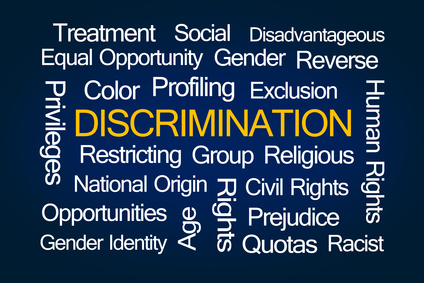Discrimination Claims can be brought by employees where an employer treats one or more employees or potential employee less favourably than others because of one of the characteristics listed below:
- Age
- Disability
- Gender Reassignment
- Marriage and Civil Partnership
- Political Belief
- Pregnancy & Maternity
- Race (including Colour, Nationality and Ethic or National Origins
- Religion or Belief
- Sex (Gender)
- Sexual Orientation
Discrimination can take a number of forms. The following types of discrimination on any of the grounds listed above will be considered unlawful:
Direct discrimination is where an employee is treated differently or not offered the same opportunities as others because of any of the characteristics above. This may consist of refusing to pay people the same salary for performing the same job, making training or other opportunities available only to certain workers or refusing someone a job.
Indirect discrimination happens when a workplace rule or practice leaves one group of employees at a disadvantage. It is only allowed if the employer can justify it. Examples could be making all employees come to work clean shaven which could affect those with certain religious beliefs or allowing public holidays which are celebrated only by one section of the community and not the other.
Victimisation is when an employee is treated differently or unfairly because they have tried to make a discrimination complaint against the employer in the past.
Harassment is also taken to be a form of discrimination.
An employee must bring a claim for discrimination to the Employment Tribunal within 3 months of the date on which the most recent instance of discrimination occurred. It is therefore crucial to obtain legal advice as soon as possible.
Make an Enquiry Now
To make a free enquiry based on any of the issues raised on this page call us on 0808 168 7288, or complete an Online Enquiry.
We will also discuss the best methods of funding your case and seek to reach a solution that best suits your needs. This can involve a “no-win, no-fee” agreement if appropriate.

